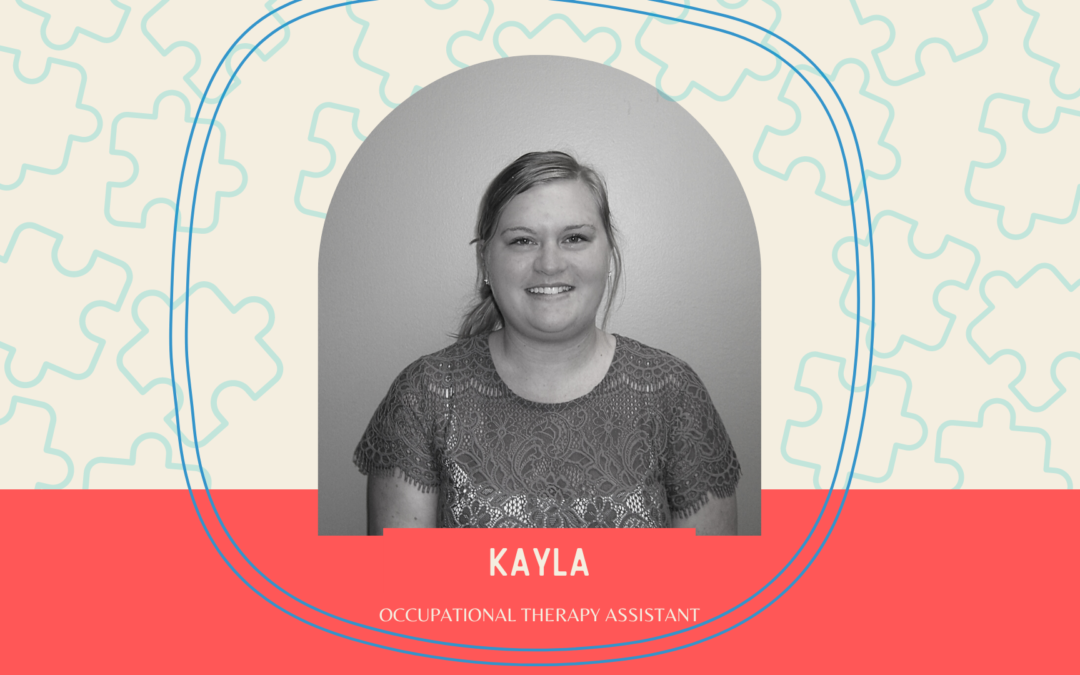Hello! My name is Kayla and I am an occupational therapy assistant at Partners In Excellence. I have been practicing as an occupational therapist for six years and treat clients at our Burnsville location. One of the many reasons that I love Partners is seeing the growth in the kids I see over the years and seeing the joy it brings to the child and their families.
Today I will be discussing emotional regulation!
What is emotional regulation?
Emotional regulation is a child’s ability to control his or her behavior. It can also be thought of as a successful integration of emotion (what a child feels) and cognition (what a child knows or can do), resulting in appropriate behavior. It is an active process that develops throughout life. It involves many aspects of social, emotional, and cognitive development
Emotional regulation is not related to intelligence. Factors that help shape how well a child can self-regulate include:
- Age- these skills develop as children grow.
- Biology- the child’s temperament and how they respond to stressful situations affect how and when they develop self-regulation
- Relationships- teachers, parents, and caregiver’s interactions with the child including how they accommodate the child temperaments and respond to their needs, affect how they learn to self-regulate
- Cognition- using language (especially naming emotions) help develop self-regulation and sets the stage for the child’s future learning.
Why is it important?
- Helps children label emotions and identify how they are feeling
- Teach efficient coping and emotional regulation strategies
- There are no “bad” emotions. All emotions are experienced at different times.
- Helps children recognize whether their emotional response is appropriate to the situation.
- Helps children to solve problems and develop coping strategies
- Makes transitioning to school much easier
- Build self-esteem and confidence
- Builds stronger friendships and relationships with others
- Makes other people comfortable to want to be around the child
What can we do?
- Model self-control and self-regulation in your words and actions when you are upset, frustrated, or excited
- Ex: You hit your toe on the stair: “Ouch that hurt! I am feeling hurt I am going to sit down and take a break.”
- Name emotions to describe how you feel and how you think the child is feeling
- Ex: “I am feeling sad.”
- Ex: “It looks like you are feeling mad!”
- Anticipate transitions and announce changes to normal daily routines
- Ex: A child has an upcoming doctor’s appointment. Tell the child multiple days before and up to the appointment discuss how doctors make you feel and how fun they can be!
- Anticipate inappropriate behaviors and re-direct it
- Ex: If you know putting his or her shoes on in the morning is hard, prep them! “Hey, I know putting on yours shoes make you feel frustrated. Let’s start with some deep breaths and ask how we can ask for help if we need it!”
- Talk about the child’s body cues when they feel that emotion
- Ex: “It looks like you are squeezing your hand…how do you feel right now? Are you feeling mad or frustrated?”
- If able, discuss why they are feeling a certain way and if anything caused it.
- Ex: “It looks like you are mad right now. What happened?”
- Talk about times when you, a family member, or character has felt that way too
- Ex: “Remember in Moana when she felt mad…what did she do?”
How can occupational therapists help?
- Assist in teaching emotions to kids
- Utilize different programs to assist to teach skills and strategies to help manage emotions
- Provide tools or strategies to assist with emotional struggles
- Look behind those emotional “outbursts” to help regulate with sensory input
Think to yourself — how do you regulate? Is it sitting on the couch relaxing, going for a run, reading a book? Now think if you didn’t have those outlets, this would cause frustration for you as well. When kids are having these “outbursts”, we can assist in finding the best way for them to regulate.
Programs To Teach Emotional Regulation
- Zones of Regulation®
- Alert Program®
- Play, Learn, Enjoy®
- Move, Work, Breathe®
- The Incredible Years®
- Social Thinking®
Our occupational therapy team is excited to continue to contribute to our Partners’ blog this year to offer insight into our field. Be on the lookout for more posts from our occupational therapists and certified occupational therapy assistants!
Resources
“Learn More about the Zones.” THE ZONES OF REGULATION: A CONCEPT TO FOSTER SELF-REGULATION & EMOTIONAL CONTROL, https://zonesofregulation.com/learn-more-about-the-zones.html.


Recent Comments